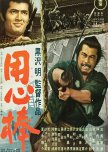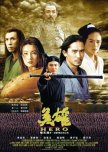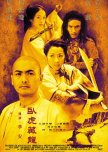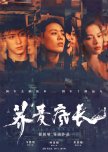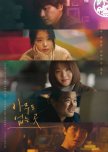 Christmas Edition: Asian Dramas and Films for Winter
Christmas Edition: Asian Dramas and Films for Winter Based on the classic martial arts novel by Liang Yu Sheng, it evolves around a pair of star-crossed lovers - a devilish outlaw, The White-Haired Witch, and the righteous Taoist leader, Zhuo Yi Hang and their love that could change the fate of the nation. Editează Traducerea
- Română
- English
- magyar / magyar nyelv
- dansk
- Titlu Nativ: 白发魔女传之明月天国
- De asemenea cunoscut ca și: Bai Fa Mo Nu Zhuan Zhi Ming Yue Tian Guo , The Bride With White Hair , White Haired Witch and the Moon Kingdom , White Haired Witch ,
- Regizor: Jacob Cheung
- Scenarist: Shi He Ran
- Genuri: Romantism, Wuxia, Fantezie
Unde Urmăriți The White Haired Witch of Lunar Kingdom
Subscription (sub)
Ppv (sub)
Cast și credite
- Huang Xiao Ming Rol Principal
- Fan Bing Bing Rol Principal
- Wang Xue BingMu Rong ChongRol Principal
- Ruby Lin Rolul de Sprijin
- Yan Yi KuanHuang Tai JiRolul de Sprijin
- Vincent ZhaoJin Du YiRolul de Sprijin
Recenzie

The no-name female lead was a Robin Hood who stole from the rich and gave to the poor. A brilliant fighter, she looked after her group of people and helped protect their small, somewhat peaceful island within a sea of deceit and battles. The new leader of the Wu Dang tribe stumbled across her on his way to deliver the curative red pills to the emperor. He promised to give her a name worthy of her beauty and skills. Along the way he was framed for murder, she was framed for murder and everyone ended up in the mountain fortress. As often happens, they fell in love and he gave her a name.
Trying to keep up with all of the plots and traitorous groups was difficult at best. Most of the time I was a bit lost as to who was supposed to be the bad guys. Except for Wu Dang and the mountain fort, the rest were duplicitous murderers. When the story stayed with the lovers, I found it to be engaging. Elsewhere, it tended to lose it's way, especially near the end.
The heart of this movie was the love story with all of the betrayals swirling around them for external conflict and to test their love and trust. The actors certainly looked earnest enough, though I wasn't completely sold on their chemistry. I'm really not sure why it was titled, The White Haired Witch. Zhuo Yi Hang had substantially more time on screen and development than Lian Nishang (the name he gave her). I was disappointed that she was given less time and character development for what could have been a much more interesting character. The titular character shouldn't be relegated to practically a supporting role in her own film.
The cinematography and costumes were beautiful and the natural scenery made for alluring settings. The movie did not disappoint in these areas. The CGI was disappointing when it came to people leaping around the mountains.
I thought many of the fight scenes were good. Most were fairly short and brutal. It was a wuxia which meant there was some flying around and special powers. None of that bothered me in the least. The only problem I had was when huge armies clashed with the view narrowed down to a few people making the battles small in scope.
The White Haired Witch of Lunar Kingdom had great potential, it was beautiful to look at but was let down by the muddled political plots and lack of meaningful evolution for the main character.
Considerați utilă această recenzie?

JohnnyRobinson
0 oamenii au considerat această recenzie utilă
1993 versions of this story were better, in my opinion...
I agree with everything said by the first person to write a review here: The Butterfly...There was also too much 'choose your side' moments in this movie; to would have been better to stick to the original story rather than add to it, as this one tried.
The 1993 versions placed more emphasis on the love story rather than the political story, which I believe were better.
The two main cast were great, in their acting and in their showing attraction/affection to each other, but the director tried to "rush" the love portion of this movie.
Some of the other support actors, although they were sufficient and all, had their parts re-written in this version of the telling of the great story from which they it came. Although, they did their parts well, and added mostly to the overall theme and support to the movie and the main cast, the script itself that they followed left many holes that no one even tried to fill nearer the end: first they were wanted; then they were forgiven.
The other main problem is that the director, Jacob Cheung, couldn't decide whether he wanted to make a martial arts/'carve-them-up" movie, a love story movie or a political movie; and since he tried to do all three, the movie failed miserably!
This could have been a great war movie, if properly developed; a great love movie, if properly developed; or a great political movie, if properly developed. However, none of these options were fully developed and that is why most reviews on the Internet give it a low rating, as I am.
It seems that all Chinese movie are pushing the "either you are For Us (China) Or Against Us" mentality over the last decade: I wonder if President Xi or the infamous party he belongs to had anything to do with this turn toward the "FUOAU" mentality?
I don't think that I really have to answer that question: President Xi became most prominent political leader in China, since 2012, two years before this movie was made.
I loved the cinematography and music, probably because I thought it fit well with the scenes where it was added: I did like the ending music as well.
I loved the costumes and such, giving it an appearance of a time when most in China were all poor, except the Palace people.
It is important to remember WHY the people were so poor then: greedy Ming Dynasty politicians...
I disliked how the events were rushed through; more time should have been spent to fully develop the scenes and the cast members and their outlook, giving us a better understanding of WHY they did what they did...
For example, first Wudong disowned Liang, then they offered the fight with him; no discussion of his actions in between the two actions or why they changed their minds.
What is funny: most reviews say that the red pills (delivered by Liang) killed the emperor and Liang becomes a wanted man; in reality, the head eunuch and not the emperor took the red pills, so why does everyone keep saying that the red pills killed the emperor?
I want to give a special mention to the character of Ke Ping Ting (Tong Yao): she seemed to be the only cast member that wasn't out for money or power; she simply wanted to be loved and begged Liang not to kill her father, chief eunuch Wei Zhongxian ((Ni Dahong) after the incident in the palace ; she is the ONLY ONE that actually thought about someone else besides herself, besides the male/female main cast, in this movie!
Today's directors should take lessons from the late director Akira Kurosawa, and his Seven Samurai movie: develop the movie and don's leave any loose ends in the telling of it!
Even though The Butterfly was right in her assertion, I still think that this is worth a re-watch occasionally.
RE-WATCH VALUE: moderate, but there are so many better love movies to watch out there!
Considerați utilă această recenzie?
Recomandări
There have been no recommendations submitted. Be the first and add one.

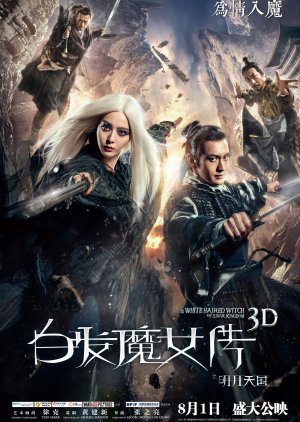








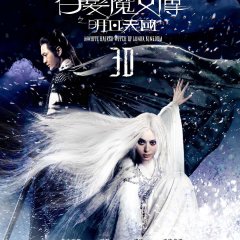

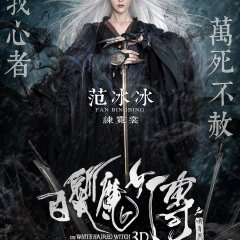
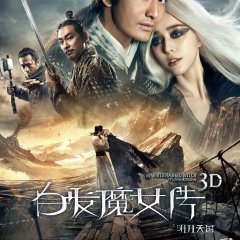

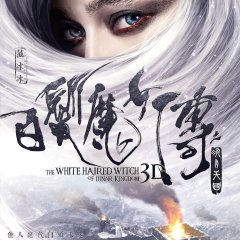




![[Priority] Movies](https://i.mydramalist.com/9onkat.jpg)
![[Priority] Movies](https://i.mydramalist.com/3ozeet.jpg)
![[Priority] Movies](https://i.mydramalist.com/nOlJ4t.jpg)
![[Priority] Movies](https://i.mydramalist.com/9o3L9t.jpg)
![[Priority] Movies](https://i.mydramalist.com/dzn5At.jpg)
